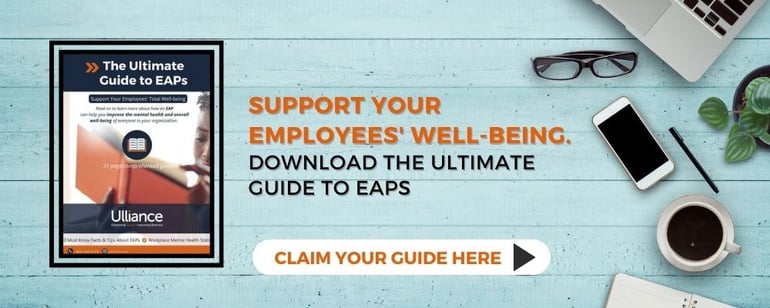As the youngest generation currently in the workforce, Gen Z brings a unique set of skills, strengths, and challenges. This generation has grown up in a constantly changing world where technology, social media, and global events have shaped their perspectives and values.
Who Are the Gen Zs?
Born between 1997 and 2012, Gen Zs have a unique shared life experience that is substantially different than their predecessors. Consider this:
- Baby Boomers, born after World War II, experienced a time of growing economic opportunity and political upheaval.
- Generation X, born between 1965 and 1980, grew up in an era of increased consumerism, competition, and technology.
- Millennials (1981-1996) experienced the emergence of the Internet and social media.
- Gen Z has grown up in a time of constant change and globalization. They are incredibly tech-savvy (having never known a world without smartphones and computers), socially conscious, uniquely entrepreneurial, and highly adaptive. In the workplace, Gen Zs bring an appetite for technology and innovation that few generations before them can match.
The Impact of Generation Z in the Workplace
Though every person is unique, in general, Gen Zs value diversity, sustainability, and career growth opportunities over higher salaries. They are not afraid of challenges and thrive while working on projects that have a mix of creativity and collaboration. They prefer to work in teams and take pride in their accomplishments as individuals or part of a team.
Gen Z employees are shaped by the intersection of technological advancement and global diversity.
“Gen Zs and millennials are striving for better work/life balance. They are also values-driven, concerned about the environment, the state of the world, and the future they see developing ahead of them. They’re looking for employers who can help empower them to make a difference. Organizations that actively listen and help address their needs and concerns will improve business resiliency and implement actionable change in our world.” Michele Parmelee
5 Common Characteristics of Gen Z Employees:
-
Beyond being tech-savvy, Gen-Zs can be seen as tech-dependent. Having grown up with smartphones, tablets, and social media makes technology a crucial part of their lives. This natural ease with technology enables them to adapt quickly to new tools and platforms, a valuable asset in our ever-evolving digital economy.
-
Gen Z is the most diverse generation to date, leading to a heightened awareness and expectation for inclusivity and representation in the workplace. They value authenticity, transparency, and social responsibility, often seeking out employers who align with these values.
- Unlike the Millennials who are often seen as idealistic and focused on meaningful work, Gen Z appears to be more pragmatic and security oriented. They witnessed their parents grapple with the Great Recession and are therefore more likely to prioritize job security and financial stability.
- In contrast to Generation X, known for their independent, self-sufficient approach, Gen Z prefers collaborative environments where they can work together and learn from others.
-
When compared to Baby Boomers, valued for their strong work ethic and dedication, Gen Z’s work-life balance leans more towards flexibility, with an emphasis on mental health and well-being.

Building a Strong Employer-Employee Relationship with Gen Z
Organizations are finding that they need to better understand Gen Z in order to build a mutually beneficial relationship.
That may mean making changes in company practices and policies or simply embracing new attitudes about work-life balance. An employee assistance program can help companies chart a new path toward working with Gen Z's in the workplace while encouraging a culture that works for all generations.
Here are some suggestions:
Embrace Their Diversity
According to Pew Research, "Gen Z is more racially and ethnically diverse than previous generations." This diversity is not only a challenge for workplaces but also a tremendous opportunity.
To create a workplace that is welcoming and inclusive for Gen Z, companies need to embrace their differences and create space for their unique perspectives and talents. Make sure that the organization's policies, practices, and programs reflect the diversity of the workforce and foster a sense of belonging for everyone.
Provide Learning and Development Opportunities
Gen Z is a generation of lifelong learners who value continuous education and growth. Citing a 2021 survey by LinkedIn, Russell Tobin says, "Gen Z workers prioritize career development opportunities more than any other factor when considering a job offer.
To engage and retain Gen Z, companies need to provide learning and development opportunities that align with their goals, interests, and skills. This could include mentorship programs, job rotations, on-the-job training, online courses, and more.
Create a Flexible and Supportive Work Environment
Gen Z values work-life balance and is willing to trade high salaries and job security for a flexible and supportive work environment. Companies can accommodate their preferences by offering flexible work arrangements, such as telecommuting, job sharing, or flexible schedules.
Gen Zs also expect support for their mental and emotional well-being through mental health resources, wellness programs, and work-life coaching.
Use Technology Effectively
As digital natives, Gen Z is comfortable with technology and expects their employers to be too. To meet their expectations and empower them to do their best work, employers need to use technology effectively.
This could include adopting a digital communication platform, offering online collaboration tools, or using gamification to enhance learning and engagement. Employers can also leverage social media and digital marketing strategies to attract and retain Gen Z talent.
Listen to Their Feedback and Ideas
Gen Z is a generation that values transparency, authenticity, and empathy, and they expect their employers to do the same. By creating a culture of open communication and feedback, employers can foster a sense of empowerment, ownership, and accountability among their Gen Z employees.
Understand and Respect Their Interest in Social Causes
Gen Zs place a higher importance on social and environmental issues and make career decisions that align with their beliefs.
Referring to both the Gen Z and Millennial generation, Deloitte says, "the ability to drive change on social issues overall has the potential to make or break the recruitment and retention of these generations."
To attract and retain Gen Z talent, employers need to demonstrate their commitment to social causes through authentic public statements, internal initiatives, and external partnerships. By being socially responsible and making a positive impact in the world, employers are able to build trust with Gen Z employees while also creating a more meaningful connection with them.
As Gen Z enters the workforce, human resources professionals need to understand and support their unique characteristics and needs. The future of your organization depends on how well you can tap into the potential of Gen Z and create a workplace that meets their expectations and values.
When you partner with Ulliance, our Life Advisor Consultants are always just a phone call away to teach ways to enhance your work/life balance and increase your happiness. The Ulliance Life Advisor Employee Assistance Program can help employees and employers come closer to a state of total well-being.
Investing in the right EAP or Wellness Program to support your employees will help them and help you. Visit https://ulliance.com/ or call 866-648-8326.
The Ulliance Employee Assistance Program can address the
following issues:
• Stress about work or job performance
• Crisis in the workplace
• Conflict resolution at work or in one’s personal life
• Marital or relationship problems
• Child or elder care concerns
• Financial worries
• Mental health problems
• Alcohol/substance abuse
• Grief
• Interpersonal conflicts
• AND MORE!
Have some questions about our services? Book a quick meeting below!
References:
Deloitte’s 2023 Gen Z and Millennial Survey Reveals Workplace Progress Despite New Setbacks
https://www.deloitte.com/global/en/about/press-room/2023-gen-z-and-millenial-survey.html
Everything You Need to Know About Recruiting & Retaining Gen Z, Russell Tobin
https://www.russelltobin.com/news/everything-you-need-to-know-about-recruiting-retaining-gen-z/
Gen Z: The Most Diverse Generation in the Workplace, Andrea Rodriguez, Insight Global
https://insightglobal.com/blog/gen-z-diversity-in-the-workplace/
On the Cusp of Adulthood and Facing an Uncertain Future: What We Know About Gen Z So Far, Kim Parker and Ruth Igielnik, Pew Research https://www.pewresearch.org/social-trends/2020/05/14/on-the-cusp-of-adulthood-and-facing-an-uncertain-future-what-we-know-about-gen-z-so-far-2/

